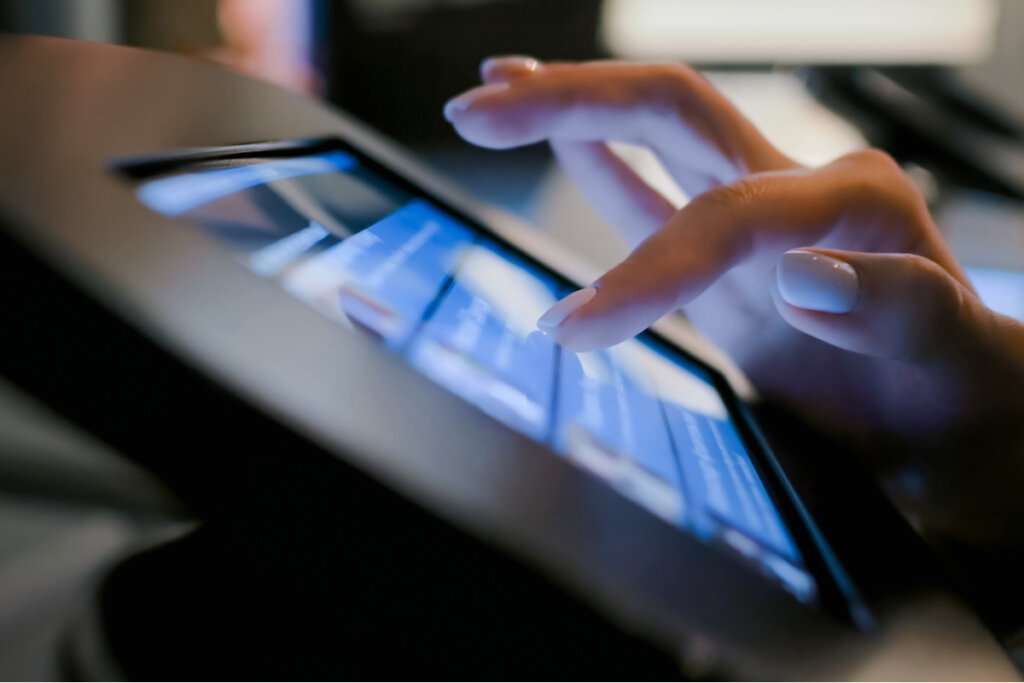Viewing Online Art Can Improve Your Well-Being


Written and verified by the psychologist María Vélez
There’s evidence to support the hypothesis that the viewing of works of art protects your mental health. The good news related to this discovery is that today, you can also enjoy art from home, making virtual visits to museums, accessing all the paintings in the world through images, and even appreciating 3D sculptures.
This trend became more prevalent in the recent confinement due to COVID-19, causing the supply to also increase. In turn, the interest of specialists has been aroused in identifying the benefits derived from the contemplation of works of art.

The effect of art on health
In recent decades, numerous studies have explored the effect of art on health, either as part of a therapeutic process or in a context outside of clinical intervention. There’s such a great deal of accumulated evidence that the World Health Organization published a report in 2019 regarding the effects of artistic activities, active or passive, on health.
These types of activities bring together a combination of factors that promote health in different areas. In addition to fostering imagination and sensory stimulation, art triggers physiological and psychological responses associated with emotions.
The expression and regulation of emotions are fundamental exercises in managing stress and mental health. Therefore, exposure to art could reduce the risk of stress and mood disorders.
Artistic activities may involve some form of physical exercise or social interactions. Interacting with other people favors the creation of social support networks and reduces loneliness. This has been commonly associated with delaying cognitive, functional, and motor decline. In addition, it prevents and alleviates other psychological disorders.
On the other hand, viewing art can contribute to reducing a sedentary lifestyle and stimulate cognitive functions, favoring learning and the development of certain skills. This has been related to a lower risk of developing dementia and diseases such as depression. In short, whatever the format, seeing works of art can improve your well-being and health in both a direct and indirect way.
Viewing online works of art can improve your well-being
As we mentioned earlier, there are several factors or pathways through which viewing works of art can improve your well-being. Since the visual or cognitive-emotional aspects of the experience play a relevant role, these effects could also be achieved by viewing works of art online. In fact, this is exactly what a research team from the University of Vienna (Austria) has considered.
The study was conducted during the confinement of the first wave of Covid-19 with 84 participants. They were all asked to visit two virtual exhibitions from home. On was an exhibition of Monet’s Paintings, in the National Gallery, London. The other was non-artistic, on the history of Japanese cuisine.
Before and after the visits, the participants had to fill out a series of questionnaires on aspects such as the conditions of their confinement, their interests in art, and their degree of mastery. There were also instruments to evaluate their well-being, anxiety, mood, and levels of loneliness.
The researchers found that even in the participants who’d spent only a little time in the online art exhibitions there was a beneficial effect. More specifically, it reduced their negative moods and perception of anxiety and loneliness. Furthermore, they experienced a higher subjective degree of well-being.
This effect was even greater in those people who considered the works more significant or beautiful, due to an increase in positive sensations. In addition, the participants reported that viewing the works online was comparable to face-to-face visits or experiences in nature.

Therapeutic implications
One of the factors that seem to interest specialists the most is the therapeutic potential of viewing art. In fact, although many artistic therapies already exist (dance therapy, music therapy, etc), being able to instantly improve people’s well-being through online images would open up a whole range of new opportunities.
For example, viewing art could be used to reduce stress or anxiety in doctors’ waiting rooms or hospitals. It could help reduce the negative psychophysiological state people feel in the face of panic attacks since the sufferer could access the art directly from their cell phone. It could also be useful in bringing the beneficial effects of art to rural areas with limited access to the outside world, or to the homes of people with reduced mobility.
One interesting finding of the study was that it wasn’t necessary for the participants to spend a lot of time viewing the art. In fact, five minutes was enough. Therefore, it could also be a useful strategy for reducing stress or fatigue in the workplace. A kind of ‘micro-dose therapy’ in our daily routine.
Further research results are awaited as well as the real effectiveness of these kinds of interventions. That said, we encourage you to try the online art experience for yourself when you need to lift your mood. It’s a stimulating, enjoyable, and completely free activity!
Main image by shutterstock / T photography
All cited sources were thoroughly reviewed by our team to ensure their quality, reliability, currency, and validity. The bibliography of this article was considered reliable and of academic or scientific accuracy.
- Guardiola, E. & Baños, J.E. (2020). ¿Y si prescribimos arte? El papel del arte en la mejora de la salud y el bienestar. Revista de Medicina y Cine, 16(3), 149-153. https://doi.org/10.14201/rmc2020163149153
- Trupp, M., Bignardi, G., Chana, K., Specker, E., & Pelowski, M. (2022). Can a Brief Interaction With Online, Digital Art Improve Wellbeing? A Comparative Study of the Impact of Online Art and Culture Presentations on Mood, State-Anxiety, Subjective Wellbeing, and Loneliness. Frontiers in Psychology, 13, 782033. https://doi.org/10.3389/fpsyg.2022.782033
This text is provided for informational purposes only and does not replace consultation with a professional. If in doubt, consult your specialist.








